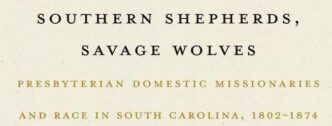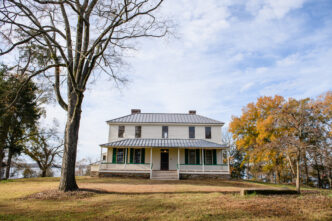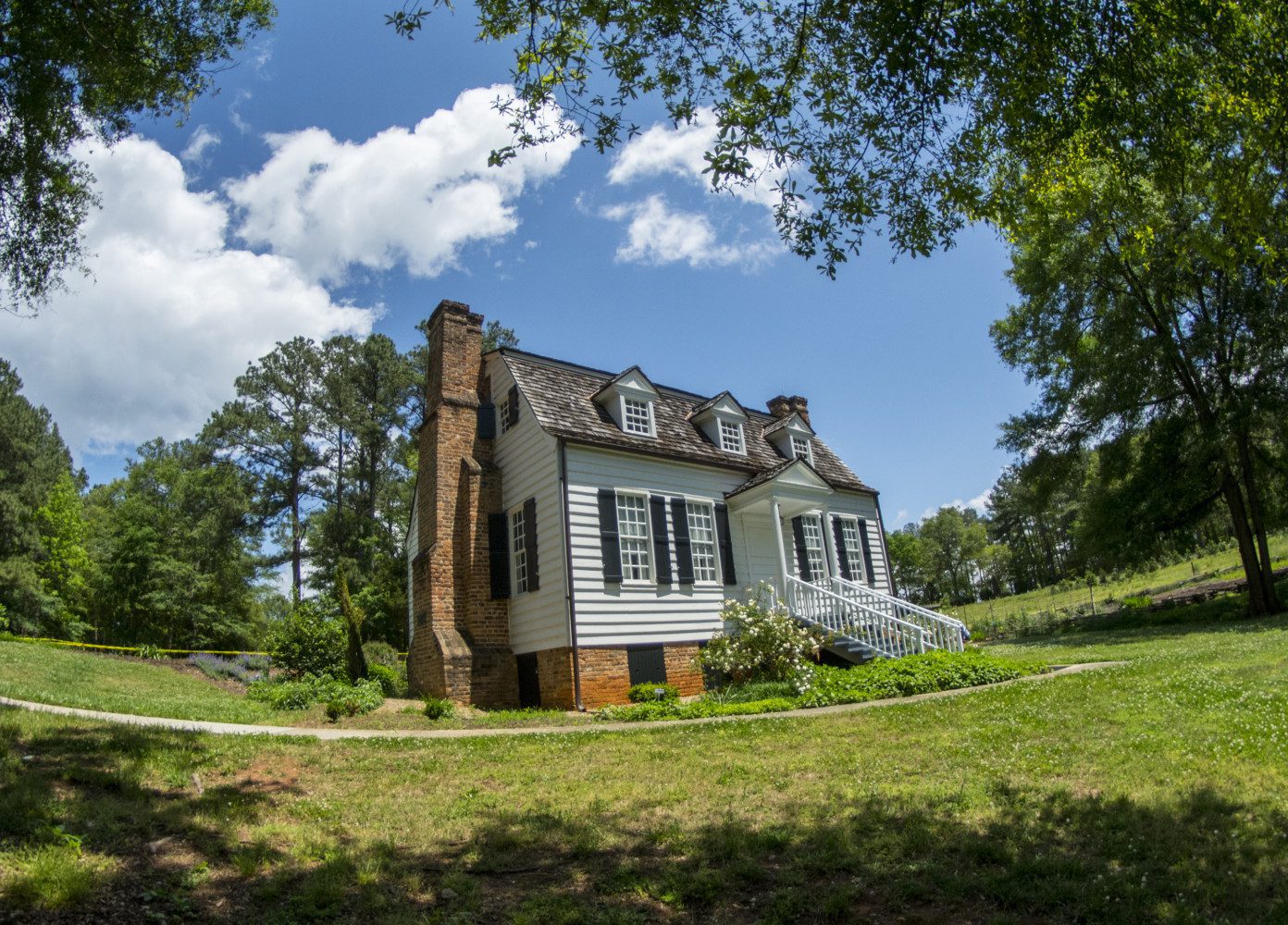Clemson University Historian Otis Pickett has been a Presbyterian since he was a student at Clemson. Before he went to graduate school to earn a master’s in history at the College of Charleston and a Ph.D. from the University of Mississippi, he earned a master’s in theological studies from Covenant Theological Seminary in St. Louis, Missouri. He has long been interested in the history of southern Presbyterians, particularly how Presbyterians worked to bring different races together in mission churches in the 19thcentury.

Pickett’s 20-year-long passion project is now being published as his first book — “Southern Shepherds, Savage Wolves: Presbyterian Domestic Missionaries and Race in South Carolina, 1802-1874,” available October 23 from the University of South Carolina Press.
Pickett will host a series of events in the Clemson area to launch the book:
- Thursday, October 23, book presentation at the Osher Lifelong Learning Institute in Clemson, 11 a.m.
- Thursday, October 23, book presentation at Pendleton Bookstore, 6 p.m.
- Saturday, October 25, book signing and speaker series at Old Stone Church in Clemson, from 2-5 p.m. Featured speakers:
- J. Brent Morris
- Sheri Belk
- Elizabeth Jemison
- Vernon Burton
- Saturday, October 25, book presentation at Clemson Presbyterian Church, 6 p.m.
- Sunday, October 26, presentation at Fort Hill Presbyterian Church in Clemson, 12:15 p.m.
- Thursday, October 30, at the Clemson Emeritus College at 10 a.m.
- Thursday, November 6, book presentation at Holtzendorff Hall on the Clemson University campus, 5:30 p.m. Register to attend.
The book is the result of years of research that started during Pickett’s time in seminary and continued through his master’s thesis and later his dissertation.

“When I was in seminary, I read a quote from Martin Luther King Jr. that said, ’11:00 on Sunday morning is the most segregated hour in American life,’ and I wondered why that was. Where did that come from? That question really drove this book,” Pickett said. “Part of this was my own journey to understand the history of religion in South Carolina and part was understanding where segregated worship originated. I wanted to know what Presbyterians in the 19th century were saying about race? Turns out, they were talking about it a lot.”
Pickett’s book focuses on the domestic missionary system established by the Presbyterian church in South Carolina to attempt to integrate enslaved people, Native Americans and, later, freed African Americans, into the church.
“By examining these missionaries and mission churches, Pickett sheds new light not only on the complicated role that religion played in shaping slavery and Native American removal in the US South but also the fate of these ideas in the crucible of the Civil War and its aftermath,” according to the description of the book from the University of South Carolina Press.
“This research has not only informed my scholarship, but also my faith, my community engagement, racial healing and my work in public history,” said Pickett. “We divided ourselves when we didn’t need to. I believe we can come back together. If we know how and why we divided, we can fix it. My hope is that this book can be a blueprint on how to undo some of that division. We are currently in one of the most divided times in our nation’s history and I wanted to take us back to a time when different races worshipped together. Maybe there are some lessons there on how we can come together again and do it in a way that offers dignity, hope and equality to everyone.”
The book is available for purchase in hardcover and paperback and is also available for free as an open access e-book.








